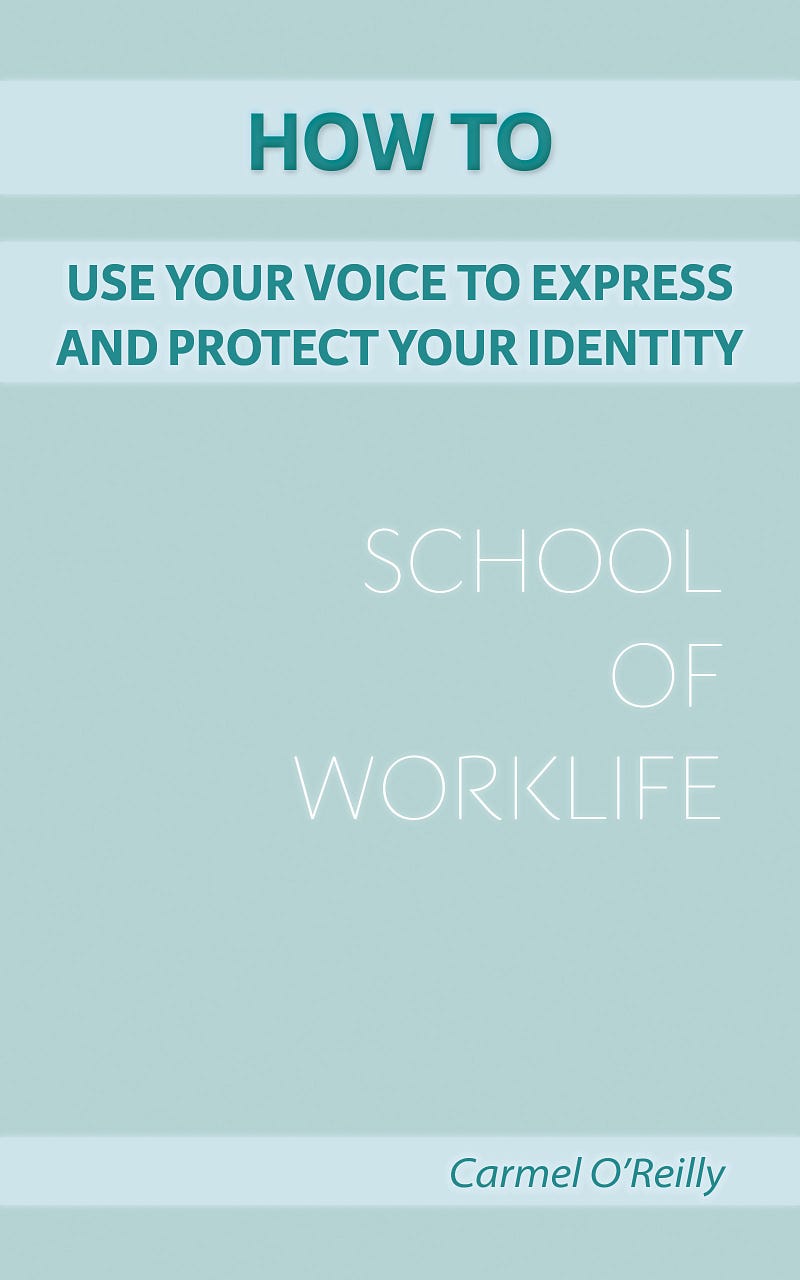Your Voice Comes From Who You Are and Who You Are Not. It Grows Out of Your Identity, Out Your Own Unique Brand.

Carlos’s Story — Speaking Up Why? A Simple yet Profound Question
Carlos works in the hotel and leisure industry. He is quite an easy-going person, gets on well with people and is a good team player. Some time ago Blair joined his team, and from the very beginning she just did not gel with Carlos. It was actually more than not gelling: she seemed to go out of her way to be uncooperative, and was openly critical of any ideas Carlos put forward at meetings. He found her disrespectful and difficult to work with.
He tried to get on with his work by interacting with her as little as he needed to. But it was a small team, and being the hotel and leisure industry he spent long hours in his job, which meant long hours in her company. It soon came to a head and he knew he had to do something about it.
One day when they were alone, he asked her, “Why?” Blair stopped what she was doing and with obvious irritation asked, “What do you mean ‘Why?’ Why what?” Carlos answered, “Why do you behave in the way you do towards me?” “What are you talking about?” she snapped. Carlos answered, “Why do you behave in the way you do towards me? I get a sense you’re irritated by me, as you seem to be now. I’m not sure if it’s something I’ve done or said, but it would help to know, because then perhaps we could find a way of working together. Our work means we spend a lot of time in each other’s company, and I think it’s important we try to make this work, not just for us but for the morale of the team.”
Now Blair did not suddenly open up her heart to Carlos, she did not offer an explanation or apologise for her behaviour, she actually did not say anything. Maybe she did not know what to say, who knows. Even so Carlos was glad he had addressed the matter. It was a brief interaction, and he felt he had handled it in a professional way; and more importantly, he got it out in the open by letting her know her behaviour was unacceptable to him, and that he was willing to find a way to work together.
Although Blair did not respond initially to Carlos, her behaviour towards him did change. She was not so critical of his ideas, and they began to work together in a more cooperative way. While I do not think they will ever be the best of friends, they are actually getting on OK.
The situation Carlos found himself in is not so unusual, and it is one I hear in some shape or form time and time again in conversations with people. Some people will think: “Well I’ll put up with this person or situation while I’m in work, and then I can put it out of my mind once I’m outside of work.” The thing is we spend so much time in our work that it is not always possible or indeed good for our health and well-being.
Working with someone who has a demotivating impact on an individual or team can ruin morale, and it is important not to let a bad situation fester. I think by asking the simple question “Why?” we can open up an awareness to there being a problem, and get the message across that it is not acceptable, and that something needs to change. All of this from one simple question is quite profound, I think.
Develop Your WorkLife Story
This is your WorkLife. You get to decide who you want to be part of that. You have the power to shape the characters in your story through your voice, through what you say, and through what you do not say. Words are powerful, and so is subtext. You also have the power to write people out of your story.
Your Speaking Up Story Assignment
Do you have a story of when you needed to speak up to protect your identity and did?
What was the situation?
What led you to knowing you had to speak up?
What did you say?
How did it go?
What was the outcome?
Are you glad you spoke up?
In hindsight, is there anything you could have, should have, would have done differently?
What did you learn from this?
This story is one of the stories featured in my book: How To Use Your Voice To Express and Protect Your Identity. From The School Of WorkLife Book Series.
If you enjoyed this, please hit the *Clap* 👏 button as many times as you wish.
The stories I write are based on real WorkLife challenges, obstacles and successes. In some stories I share my own experiences, and with permission stories of people I’ve worked with, whose names have been changed to protect their anonymity. Other persons and companies portrayed in the stories are not based on real people or entities.